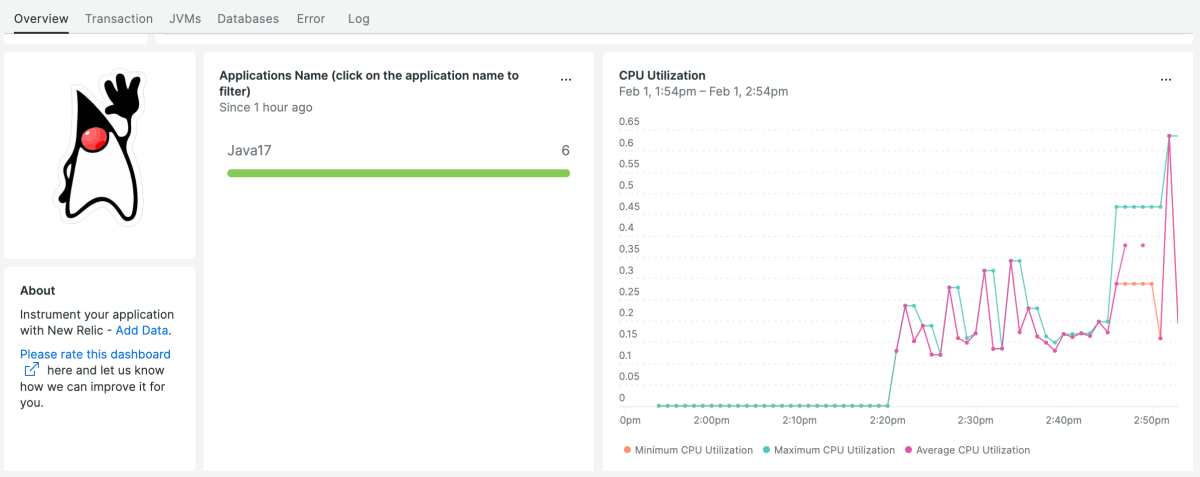Quickstart
Integration Features
dashboards
JDBC-ExecuteBatch Java Agent Extension quickstart contains 1 dashboard. These interactive visualizations let you easily explore your data, understand context, and resolve problems faster.
Show MoreShow Less

